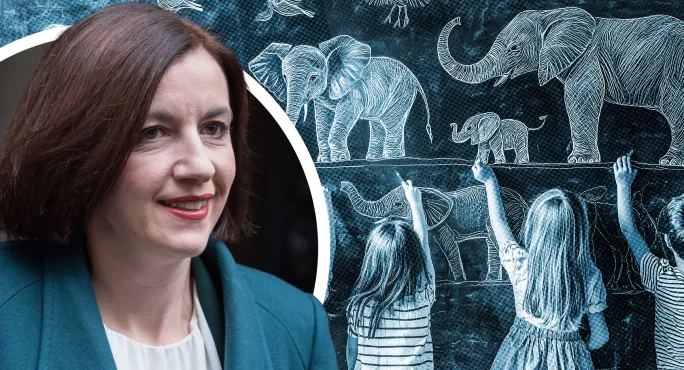Bridget Phillipson made the most consequential speech by any education secretary in a generation when she addressed the Confederation of School Trusts’ (CST) conference last week.
It wasn’t because she made it clear that special educational needs and disabilities (SEND) reform will be built on the principle of mainstream inclusion. Or because she said it isn’t enough to focus on children achieving, we must put equal value on them thriving.
Nor was it because she reaffirmed previously the stated view that great teachers are the most important factor in a child’s success or she admitted that schools alone cannot remove the stain of child poverty that blights our communities.
All of these things are hugely positive and hugely welcome.
Ending competition between schools
But what made this speech a pivotal moment were two sentences that addressed an elephant in the room that has caused enormous damage to schools, destroyed the lives of so many vulnerable young people and driven a coach and horses through all attempts to bring greater equity in our communities.
“The current system incentivised some to adopt a competitive rather than a collaborative model,” she told the CST delegates. “That chase for a narrow shadow of excellence - the kind that only succeeds by pushing problems on to others - that ends now.”
This is the moment this sector has needed for 15 years.
Schools and trusts compete by necessity in a zero-sum game, where for every winner there has to be a loser.
Progress 8 and key stages 2 and 5 value added all work to the same end: schools are ranked and there has to be a top, middle and bottom.
The winners are rewarded with plaudits, honours, a specialist hub, a system-wide role or the chance to sponsor other schools.
The losers are pilloried in the local press, sneered at on social media, forced to accept support from a winner, and their leaders often lose their livelihoods.
The stakes are so high, why would schools not seek advantage when they are forced to compete? We all know it’s gameable.
A toxic game
So many of the problems that we desperately need to address have their origins in this toxic game: off-rolling, encouraging children into elective home education, telling the parents of children with special educational needs and disabilities (SEND) that a school is not best equipped to meet their needs, excessive use of exclusion, manipulating admissions, narrowing the curriculum around key measures.
It is always the most vulnerable young people who pay the price.
If this game ends, the government can get on with its critical mission of ensuring that every child thrives.
There is lots of important work underway, including reform of curriculum and inspection, a new approach to SEND, more breakfast clubs, nursery places and teachers.
There are lots of great ideas that I hope will get a hearing: reformed pupil premium to target long-term disadvantage, linking up health and school data, and connecting services.
The opportunity mission can be achieved. But only if we deliver on the three most important words in Phillipson’s speech in relation to that metaphorical elephant: “That ends now”.
If the zero-sum game ends, reform can work. But if we miss the best opportunity we will ever have, our most vulnerable young people will continue to lose. For them, we cannot afford to miss this moment.
Jonny Uttley is CEO of The Education Alliance, a Yorkshire-based multi-academy trust
For the latest education news and analysis delivered every weekday morning, sign up for the Tes Daily newsletter




